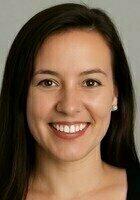
Andrew
I am a graduate of the University of Chicago, class of 2012. I have a Bachelor of Arts degree in English Language and Literature and Theater and Performance Studies. Since graduation, I have continued to live in Chicago. I am a founding member of First Floor Theater, a Chicago storefront theater company that is in its third season. I've tutored for several private clients in the past, of a variety of age ranges and backgrounds. I've tutored a variety of subjects, ranging from Science to Spanish. Additionally, I teach acting classes at a studio in Chicago at night. While I tutor a broad range of subjects, I am most passionate about English Language and Literature--particularly plays. In the past, I've had the most fun teaching students how to think critically about their reading assignments and how to write. I believe that both of these skills are invaluable to any student, and eventually, to any adult. I also believe very strongly in the value of education--I am very fortunate to have studied at excellent schools, and I try to encourage all of my students to make the most out of every educational opportunity. When I'm not tutoring, I can usually be found at the theater, either as an audience member or on the stage. I am an avid Chicago Bulls fan, and enjoy catching a game whenever I can. I also love to camp--it can be a nice change of pace from the hustle and bustle of the city.
Q&A with Andrew
Who needs tutoring?
No obligation. Takes ~1 minute.
Tutors with Similar Experience
Let's find your perfect tutor
Answer a few quick questions. We'll recommend the right plan and match you with a top 5% tutor.


